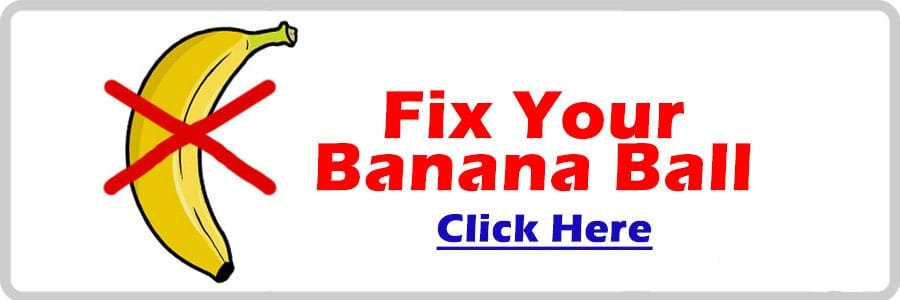Have you ever found yourself on the golf course, feeling the frustration wash over you as you watch your ball curve unexpectedly to the right? If slicing the golf ball has been a challenge for you, you’re not alone. Many golfers, whether beginners or seasoned players, deal with this common issue. So, what is the quickest method to stop slicing the ball?
Understanding the Slice
The first step in addressing your slice is to understand what it actually is. A slice is an undesired shot that curves to the right (for right-handed golfers) as it travels through the air. This typically happens when the club face is open at impact, causing the ball to spin in a way that sends it off course.
Why Do You Slice the Ball?
It’s essential to identify the root causes of your slice. Here are a few common reasons:
- Open Clubface: If the clubface is open at impact, it’ll impart left-to-right spin on the ball.
- Grip Issues: An incorrect grip can lead to an open clubface. If your grip is too weak, you’re prone to slicing.
- Swing Path: An outside-to-inside swing path leads to a slice. The club approaches the ball from outside your target line and cuts across it.
Identifying these elements in your game is crucial for making adjustments.
The Quick Fixes
You might be wondering how to quickly address these issues without embarking on a prolonged journey of improvement. While long-term practice is vital, here are some quick fixes you can implement immediately.
Adjust Your Grip
The grip is one of the most fundamental aspects of your game, and adjusting it can drastically improve your results.
- Grip Pressure: Keep your grip pressure light; a tight grip can lead to tension in your swing.
- Grip Style: Consider switching to a stronger grip. Rotate your hands slightly right (for right-handed golfers) so that more of your knuckles are visible.
Check Your Stance
Your stance plays a pivotal role in how well you hit the ball.
- Alignment: Ensure your feet, hips, and shoulders are aligned parallel to your target line. Misalignment can lead to poor swing paths.
- Ball Position: Position the ball correctly in your stance. For drivers, it should be off your left heel, while for irons, it should be more centered.
Making these small adjustments can lead to immediate changes in your results.
Improve Your Swing Path
Addressing your swing path is key to stopping your slice effectively.
- Focus on Inside-Out Swing: Practice swinging the club from inside to outside of your target line. You can visualize this by placing a tee in front of the ball to your right, giving you a target to swing towards.
- Drills: Use drills such as the “headcover drill,” where you place a headcover under your right armpit. This helps ensure your arms stay connected to your body during the swing.
Finding ways to engrain these adjustments into your muscle memory will help you swing more naturally and reduce slicing.
Practice Methods
Now that you have some quick fixes, consistent practice is essential to developing effective habits.
Use Alignment Aids
Utilizing alignment aids during practice can help you develop a more accurate swing.
- Alignment Stick: Place an alignment stick on the ground, pointing toward your target. Practice hitting balls while ensuring your feet, hips, and shoulders are aligned with the stick.
- Club Placement: Lay a club or an alignment stick on the ground perpendicular to your target line to help you visualize your swing path.
These tools will reinforce proper alignment and swinging mechanics over time.
Incorporate Drills into Your Routine
Implementing specific drills into your practice routine can yield fantastic results.
- Half Swings: Practice hitting half swings while focusing on your follow-through. This will help you control your swing and develop proper movement.
- Use Impact Bags: Hitting an impact bag can reinforce the feeling of correct body movement and clubface control at impact.
Dedicating a portion of your practice time to these drills will enhance your skills and reduce that pesky slice.
Long-Term Solutions
While quick fixes can provide immediate relief, long-term solutions will lead to better consistency in your game.
Professional Instruction
Consider getting a lesson from a qualified golf instructor. They can provide personalized feedback and help identify specific areas for improvement that you may not see on your own.
Video Analysis
Capturing your swing on video can reveal common tendencies and flaws that contribute to a slice. Use this footage to analyze your swing mechanics, focusing on your grip, setup, and follow-through.
Commitment to Change
Improvement takes time and dedicated effort. Remember that persistence in practicing your new techniques is key to overcoming your slice.
Mental Approach
Don’t forget that golf is as much a mental game as it is a physical one. Focusing on your mindset can be just as impactful in solving your slicing problem.
Visualization Techniques
Before you swing, visualize the shot you want to hit. Picture your ball traveling straight and finding the fairway.
Positive Affirmations
Creating a mantra or positive affirmation can help manage frustration. Remind yourself that improvement takes time.
Relaxation Techniques
Tension in your body can lead to unwanted errors in your swing. Consider incorporating breathing exercises or relaxation techniques before you tee off to stay calm and focused.
Summary
Tackling a slice doesn’t have to be an overwhelming task. By understanding its causes, making quick adjustments, incorporating consistent practice, and maintaining a positive mindset, you can see improvements in no time.
Remember, tackling your slice is a journey. Celebrate the small victories along the way, and keep working diligently on your skills. Understanding and implementing these strategies will lead you toward hitting straighter shots and enjoying your time on the course. Happy golfing!







